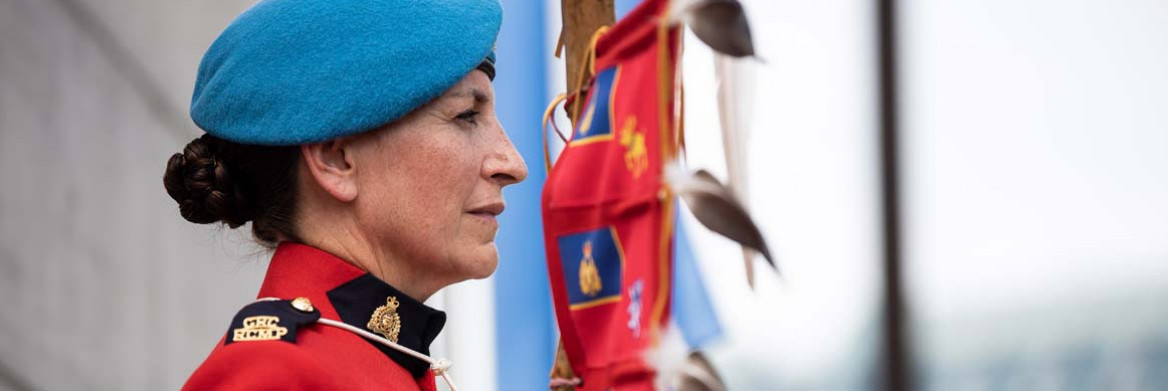The Women's Indigenous Network, better known as the WIN, started as a passion project for Sergeant Kelly Willis in the spring of 2021.
The network quickly gained traction through word of mouth, creating monthly virtual meeting spaces for Indigenous women and Two-Spirit RCMP employees. They come together regularly to support each other and help break down long-standing internal barriers in areas like recruitment, retention, development, and promotion. Their stories and initiatives are shared through a monthly newsletter.
Strength and pride
Willis is from Chisasibi, a Cree reserve in northern Quebec. She comes from a long line of strong First Nations women and is a third-generation residential school attendee. Her great-grandmother was a midwife. Her grandmother was among the first in her community to attend residential school but was expelled for stealing a chocolate bar. "The truth is that she and the other children were hungry," explains Willis, "and my grandmother was doing what she thought was right to try to help them."
Willis' mother is a residential school survivor and high school graduate who was told that further education would be wasted on her. Now in her 80s, she's still expanding her knowledge and skills. "I'm extremely proud of my heritage and the role models in my family," says Willis. "They have always supported me and they're proud that I'm an RCMP officer."
The Women's Indigenous Network benefits from administrative help from the RCMP Indigenous Collaboration, Co-Development, Accountability (RICCA) team. The network is a welcoming community where Indigenous employees share stories and discover similar experiences, which include facing systemically racist policies and practices that were never talked about in the past.
"Indigenous employees, in particular women, are under-represented at higher ranks in the organization," adds Willis. "I'm hoping that this will change as the Women's Indigenous Network continues to be consulted as a key internal stakeholder for policy, program, and process changes."
Culture shift
Willis is optimistic about the future, pointing to the support from senior leaders and other internal allies. "We have a lot of change agents and those with big hearts in this organization who want to help," she says. "If we can have our voices heard and if we can have the courage to express ourselves, I think we can play a meaningful role in influencing change, shifting the culture, and supporting the RCMP's efforts at Indigenous reconciliation."
Among the most visible signs of progress are recent changes to uniform policy that allow for the wearing of Eagle Feathers or a Métis sash. Willis is part of a team that is pushing hard to gain approval for other Indigenous symbols such as a ribbon skirt, as she did for a new Indigenous ensign that appears on her name tag.
"Being able to wear cultural items in uniform gives us a sense of pride and also serves as a powerful recruiting tool for Indigenous people who can see themselves represented in the RCMP," says Willis. "It's all part of a much bigger transformation supported by the Women's Indigenous Network that we hope will eventually lead to meaningful reconciliation with First Nations, Inuit, and Métis Peoples. For me, the network is a way to honour the women in my life who worked so hard to blaze new trails for the next generations."
